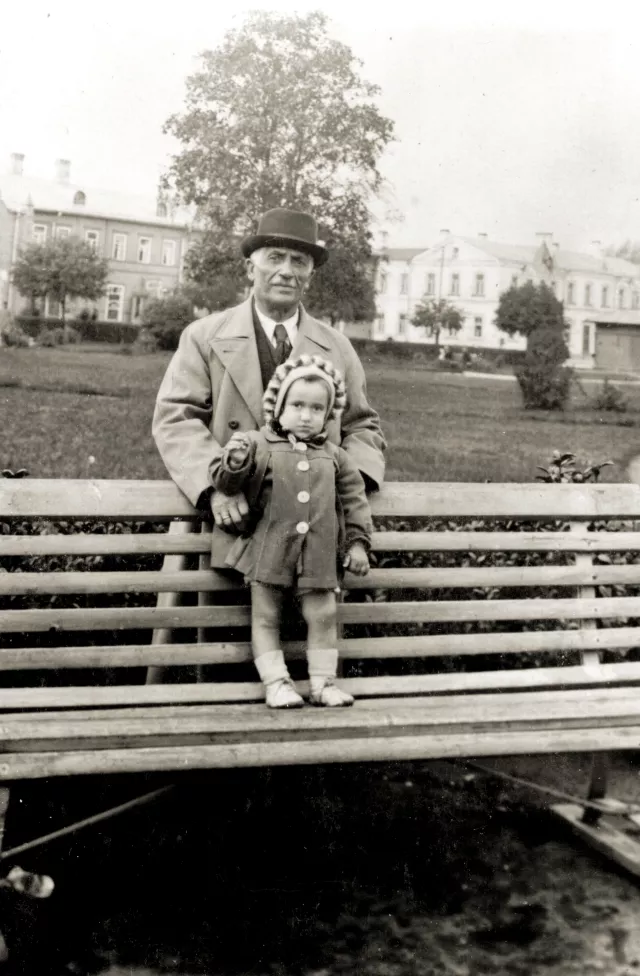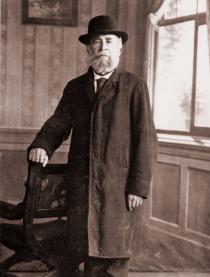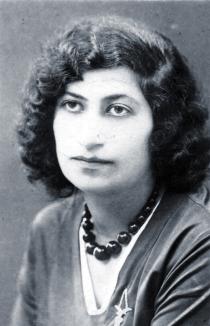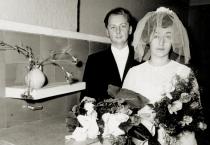Ruth Laane with her grandfather Iosif Korobov
This is my grandfather Iosif Korobov and me. This photo was taken in Narva in 1940.
I was born in Narva in 1938. I was the only child in the family. My parents gave me the name of Ruth.
We were quite wealthy. My father was the only breadwinner, but this was sufficient. He had rightist attitudes like his parents. Uncle Philip was a leftist, but he did not belong to any parties. He sympathized with the poor and miserable people. I remember my father and Philip arguing till their voices became hoarse. I don't know the subject of their disputes, but I remember them for a different reason. We had a very beautiful dog, the pet of the family. When my father and Philip started shouting, the dog became desperate trying to understand who was hurting whom and kept tossing from one to another barking loudly. My uncle was a great supporter of the Soviet Union and admired the principles of the Soviet regime: equality, internationalism and fraternity of all people. This was all he heard about from Soviet newspapers and radio programs. He had never been to the USSR and could not have his own opinion.
When in 1940 Estonia became Soviet, Philip was probably the only one in our family who was happy about it. The rest of the family, my parents and my mother and father's parents believed it to be inevitably evil. There was nothing to be happy about, and it was impossible to help it.
It goes without saying that Soviet authorities confiscated my grandfather's shop and store. Besides, the bill that my grandfather had signed one day played its role. My grandfather had never seen the factory and was just a stooge, but for Soviet authorities he was a factory and a store owner, a bourgeois and an enemy of the people. Mama told me that people had been arrested before overall deportation.
My grandfather had no doubts that this was going to happen to them. He had his belongings packed to avoid the hustle when the time of arrest came. They expected arrest each day. Mama told me they had such a vague idea about what was happening in the Soviet Union or where they were to be taken to that my grandmother did not dry any bread or store any food products to take with them for the road. She made a cake every day, and they ate it, and then grandmother made another cake. It never occurred to them to buy any tinned food.
However, for some reason our family was left alone. Deportation took place on 14th June 1941, when about 10,000 people were deported from Estonia. Whole families, including elderly people, children, handicapped and ill people were deported. Men were sent to the Gulag, and women and children were exiled to Siberia. A week after the deportation, on 22nd June 1941 the fascist German armies attacked the Soviet Union. My grandfather, grandmother, mama and I evacuated.





















